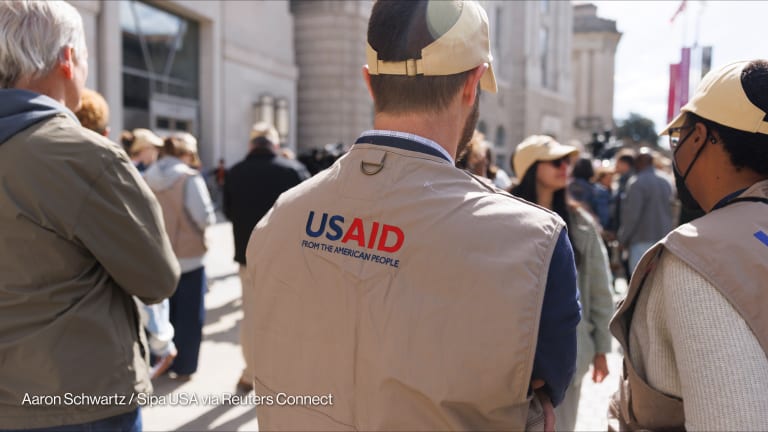“An emergency of its own making.”
That’s how partners at the U.S. Agency for International Development described the situation created by the Trump administration — one month after the president issued a funding freeze on foreign assistance, and two weeks after the government was mandated to reverse it.
“On February 13, the district court agreed that the foreign assistance freeze was likely unlawful and found that respondents would suffer irreparable harm if the freeze were not immediately suspended,” wrote the organizations in a Supreme Court filing, which was submitted on Friday afternoon. “The government took no steps toward compliance.”
Printing articles to share with others is a breach of our terms and conditions and copyright policy. Please use the sharing options on the left side of the article. Devex Pro members may share up to 10 articles per month using the Pro share tool ( ).
Search for articles
Most Read
- 1
- 2
- 3
- 4
- 5








